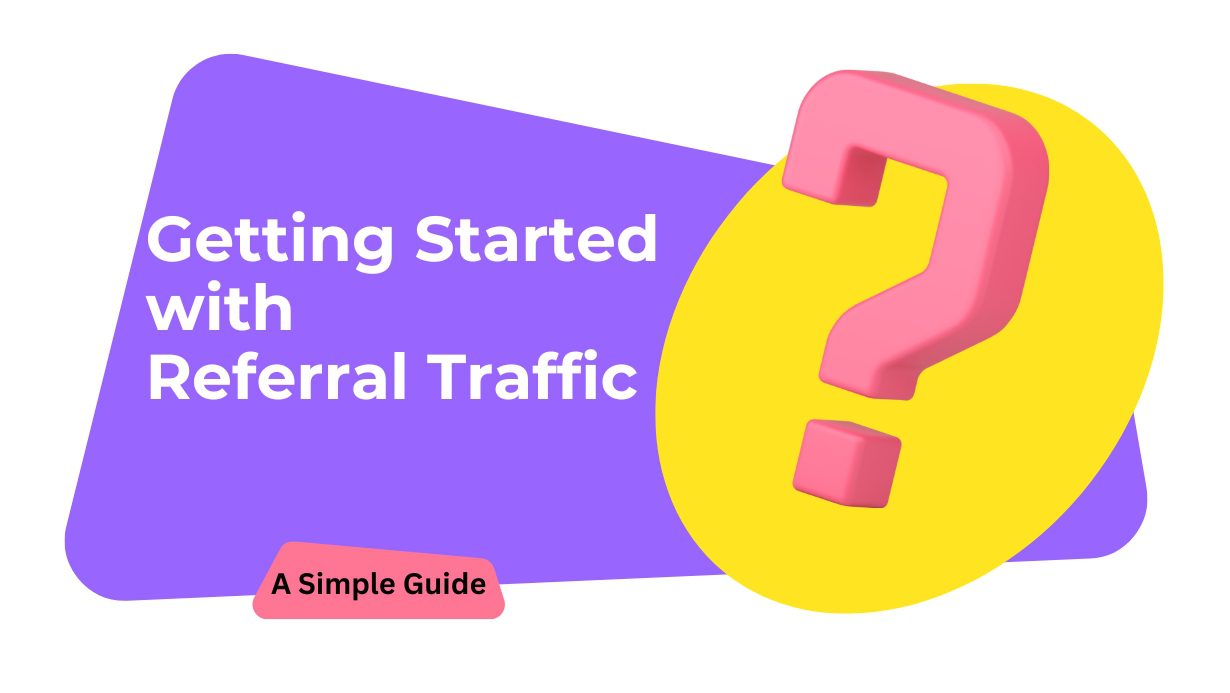Ensuring Quality in Purchased Referral Traffic: A Comprehensive Guide

In the dynamic world of digital marketing, purchasing referral traffic can be a strategic move, but guaranteeing its quality is paramount for success. Here's an in-depth exploration along with 10 frequently asked questions (FAQ) to guide you:
Ensuring Quality:
- Choose Reputable Sources:
- Opt for well-established platforms with positive reviews and a track record of delivering genuine traffic.
- Understand Traffic Generation Methods:
- Inquire about how the provider generates traffic. Ensure it aligns with ethical standards and your targeting criteria.
- Specify Your Target Audience:
- Clearly define your target audience to ensure the purchased traffic is relevant and way to elevating your Referral website traffic aligns with your business niche.
- Read Reviews and Testimonials:
- Investigate experiences from other users through reviews and testimonials to gauge the provider's reliability.
- Utilize Analytics Tools:
- Implement analytics tools such as Google Analytics to monitor key metrics like bounce rate, time on site, and conversion rates.
- Start Small for Assessment:
- Begin with a small campaign to assess the quality before making a larger investment. Monitor the results closely.
- Verify Compliance with Guidelines:
- Ensure the methods used to generate traffic comply with ethical standards and advertising platform guidelines to avoid penalties.
- Check Niche Relevance:
- Choose sources that are relevant to your niche to ensure the purchased traffic is genuinely interested in your content or offerings.
- Monitor Traffic Behavior:
- Watch for suspicious behavior. High bounce rates or unusually short session durations may indicate low-quality traffic.
- Review Refund Policies:
- Check the provider's refund policies. Reputable sources often have transparent refund or guarantee policies in case the traffic quality doesn't meet expectations.
10 Frequently Asked Questions (FAQ):
1. What exactly is purchased referral traffic?
- Purchased referral traffic involves buying visitors to your site from external sources, excluding organic search.
2. Can I target specific demographics with purchased referral traffic?
- Yes, many providers offer targeted options. Specify your desired demographics to align with your audience.
3. Are there risks associated with buying referral traffic?
- Risks include low-quality or irrelevant traffic and potential policy violations. Researching providers is crucial.
4. How can I monitor the performance of purchased traffic?
- Utilize tools like Google Analytics to track key metrics and assess the effectiveness of the campaign.
5. Is it possible to refund purchased traffic if it doesn't meet expectations?
- Check the provider's refund policies beforehand, as reputable sources often have transparent refund or guarantee policies.
6. Can purchased traffic impact my website's SEO?
- While purchased traffic itself might not directly impact SEO, engaging in unethical practices could harm your website's reputation.
7. What are the ethical considerations when buying referral traffic?
- Ensure methods comply with ethical standards and platform guidelines to avoid penalties and reputational damage.
8. How do I avoid bot or fake traffic?
- Choose reputable sources and closely monitor analytics for any suspicious behavior.
9. Can purchased traffic lead to increased conversions?
- While it can enhance visibility, conversions depend on the quality of the traffic and the relevance of your content or offerings.
10. What steps can I take if the purchased traffic doesn't meet expectations? - Regularly analyze performance data and be prepared to adjust your strategy. Contact the provider and inquire about potential solutions or refunds.
Navigating the world of purchased referral traffic will Drive Referral Traffic to your site and requires careful consideration, research, and a commitment to ethical practices. By following these guidelines and understanding potential challenges, you can make informed decisions that positively impact your online presence.






